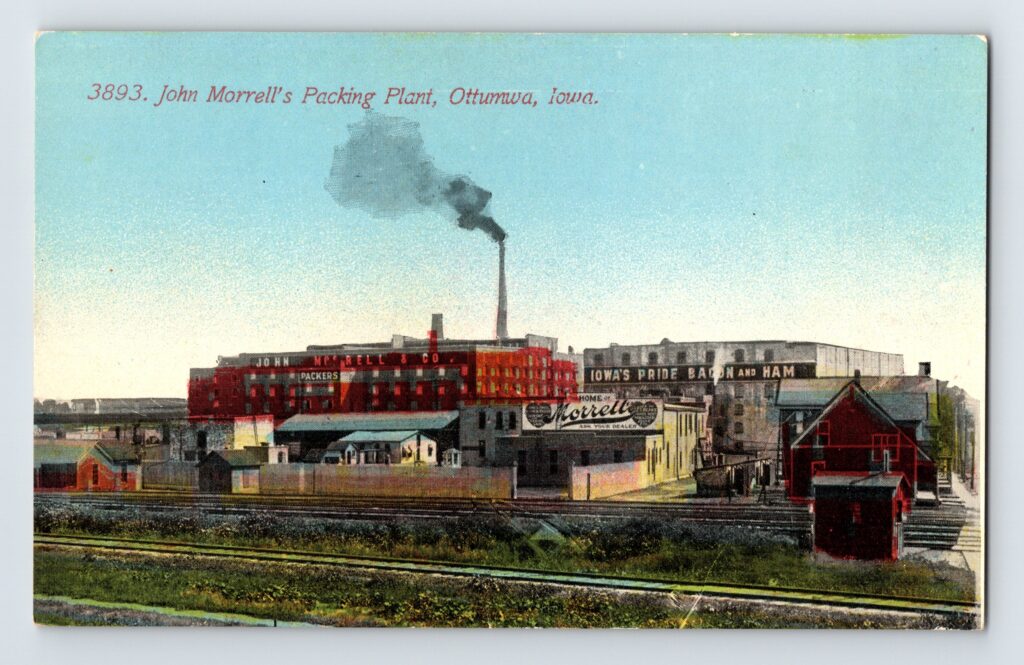
The history of John Morrell & Company is a fascinating tale of industrial growth, labor struggles, and eventual decline. Founded in England in 1827, the company expanded rapidly throughout the 19th and 20th centuries, becoming a major player in the global meatpacking industry.
Morrell’s journey to prominence began in Bradford, England, where it established itself as a successful wholesale food provisioner. The company’s expansionist spirit led it to Ireland in 1855, New York in 1864, Canada in 1868, Chicago in 1871, and Ottumwa IA, in 1877. This strategic expansion allowed Morrell to capitalize on the burgeoning American meat industry and the growing demand for processed meat products.
One of the most significant chapters in Morrell’s history is its association with Sioux Falls SD. The company established a plant there in 1909, which quickly became a major employer and economic driver for the city. However, the plant also became a hotbed of labor unrest.
In the 1930s, Morrell workers, inspired by the growing labor movement, organized and demanded better working conditions and fair wages. The resulting strikes and confrontations between workers and management were often violent and drew national attention. The “Bloody Friday” incident of 1935, in which a striker was killed, became a symbol of the bitter labor disputes that plagued the industry.
Despite its significant contributions to the meatpacking industry and its enduring legacy, Morrell eventually faced decline. Factors such as changing consumer preferences, increased competition, and economic downturns contributed to its downfall. The company’s Sioux Falls plant, once a symbol of industrial might, closed its doors in 2008, leaving a lasting impact on the city and its workers.

Leave a Reply